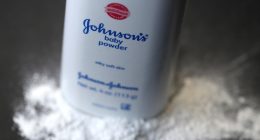THE BODY Shop’s future could be secured after falling into administration and shutting dozens of branches.
Administrators for the iconic high street brand have reportedly laid out proposals for a company voluntary arrangement (CVA), Sky News reports.
A CVA is a way of restructuring that means a business can continue trading by negotiating its debts, such as cutting rent costs with landlords.
If The Body Shop creditors agree to the CVA, put forward by administrators FRP Advisory, it means the business will continue to be a presence on the high street under its current owners – private equity group Aurelius.
However, FRP said if a CVA cannot be agreed, it would sell the business and its remaining assets, according to the news report.
The Body Shop collapsed into administration on February 13 this year, immediately closing seven stores days after.
Read more in Retail
Since then, FRP has announced a further 75 will permanently shut their doors.
So far, 67 out of the 82 that administrators said will shut have closed. This is the full list:
- Bury
- Aylesbury
- Beverley
- Blackpool
- Carlisle
- Chippenham
- Farnborough
- Grimbsy
- Halifax
- Hempstead Valley
- High Wycombe
- Hull
- Ipswich
- Kendal
- Kings Lynn
- Loughborough
- Morpeth
- Perth
- Salisbury
- Stafford
- Newton Abbot
- Trowbridge
- Banbury
- Barnstaple
- Basildon
- Bedford
- Bexleyheath
- Blackburn
- Bolton
- Broughton Park
- Camberley
- Carmarthen
- Durham
- East Kilbride
- Edinburgh Gyle Centre
- Edinburgh Princes Mall
- Epsom
- Fareham
- Harlow
- Hastings
- Huddersfield
- Ilford
- Isle of Wight
- Islington
- Lewisham
- Lichfield
- Luton
- Macclesfield
- Middlesborough
- Northampton
- Oldham
- Peterborough Queensgate
- Swansea
- Telford
- Trowbridge
- Wakefield
- Walthamstow
- Wigan
- Wolverhampton
- Bournemouth
- Surrey Quays, London
- Oxford Street Bond Street, London
- Canary Wharf, London
- Cheapside, London
- Nuneaton, Warwickshire
- Ashford Town, Kent
- Bristol Queens Road
As part of the 75 store closures, 500 staff will eventually lose their jobs, with 270 head office roles to be axed as well.
Most read in Money
The Body Shop has also closed its Avon-style Body Shop at Home service for good, and axed its Ambassador Programme which was set to replace it.
Aurelius, which bought the company last November, also confirmed it had sold off most of The Body Shop business in mainland Europe and parts of Asia in January.
The Body Shop was founded by Anita Roddick and her husband Gordon in Brighton in 1976.
It aimed to set itself apart from other beauty retailers by focusing on ethically sourced and naturally-based ingredients.
The brand joined the L’Oreal group in 2006, before being bought by Natura and Co in 2017.
But the move to sell the business to L’Oreal in 2006 has been seen by some as a key moment when its fortunes started to turn.
Who was The Body Shop founder Anita Roddick?
Dame Anita Roddick, born October 23, 1942, was a British businesswoman, human rights activist and environmental campaigner.
Throughout her lifetime, Anita was best known as the founder of the Body Shop – a cosmetics company producing and retailing natural beauty products.
Anita opened her first Body Shop in Brighton back in 1976.
The brand first started as a small shop providing quality skincare products in refilled bottles, with the belief that the business could be a force for good.
Following this, the Body Shop went on to become a global retail business serving over 30 million customers worldwide.
As a keen campaigner, Anita was involved in activism for environmental and social issues, such as involvement with Greenpeace and The Big Issue.
In addition to this, in 1990, the late entrepreneur founded Children on the Edge – a charitable organisation which helps disadvantaged children in Eastern Europe, Africa and Asia.
In 2007 Anita, who also worked alongside her husband Gordan, sold the company to L’Oréal, but still played an active role in the business.
French firm L’Oreal paid £625million for the company, providing Anita and her husband Gordon with more than £100million for their 18 per cent share in the business.
In September 2007, Dame Anita Roddick passed away at 64 from a brain haemorrhage after being admitted to St Richard’s Hospital, Chichester, West Sussex.
Her husband Gordon, and her two daughters, Sam and Justine, were at her side.
Before her passing, Anita had revealed that she was diagnosed with Hepatitis C in 2004.
The late founder’s illness was first discovered during a routine blood test for a life insurance policy.
She had lived with the illness for more than 30 years before it was discovered – by which time she was suffering from cirrhosis of the liver.
In 2008, a year after her passing, Anita’s will revealed that she had given away all of her £51million to charity and the rest to tax.
Mark Constantine, co-founder of The Body Shop’s rival Lush, was a major supplier to it for years under his previous business.
He previously said that under L’Oreal’s ownership the move of manufacturing to the Philippines allowed for better profit margins, but at a price.
He said: “You can’t cheapen every-thing, remove the values and take more profit without customers noticing and going elsewhere.
“They lost that feeling one got, when buying a Body Shop product, that you were helping to change the world.”
What does going into administration mean?
When a company enters administration, all control is passed to an appointed administrator – who has to be a licensed insolvency practitioner.
Their goal is to leverage the company’s assets and business to repay creditors.
Once the administrator has taken over, a moratorium is placed around the company and stops all legal actions.
After the administrator takes over, there isn’t much that can be done to reverse the process.
How does administration work?
The administrator will write to your creditors and Companies House to say they’ve been appointed.
They will try to stop the company from being liquidated but if they can’t, the administrator will pay as much of a company’s debts as possible from the assets.
The administrator has eight weeks to write a statement explaining what they plan to do.
READ MORE SUN STORIES
This must be sent to creditors, employees and Companies House and invites them to approve or amend the plans at a meeting.
The administrators might try to negotiate rents with landlords to keep stores open, or they might look to close just the least profitable stores.
Do you have a money problem that needs sorting? Get in touch by emailing [email protected].
Plus, you can join our Sun Money Chats and Tips Facebook group to share your tips and stories










